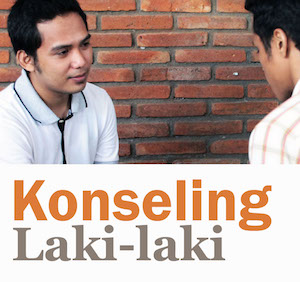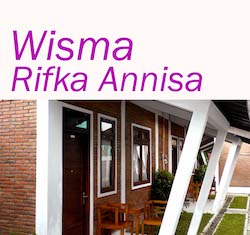Widodo, as people call him, is one of the security crew in Ngalang Village, Gedangsari. As Widodo is involved in law related activities, he was required to participate in a forum that addressed victims of violence against women and children (FPK2PA) in Ngalang Village. Widodo’s involvement in the forum was sparked by curiosity about Rifka Annisa. Rifka Annisa which means ‘female friend’, as he understands also means ‘male friend’. Widodo was curious to learn about how Rifka Annisa’s goals could be of benefit to himself.
As a man and a father, Widodo understands that he is influenced by his family and community. His upbringing and his parent values strongly influence his behavior. In the past, he thought that the role of men was to earn a living, to work and make decisions for the family. He believed that women were a companion of man that undertook duties in the house, bedroom and kitchen. This was his understanding and belief until he grew up and became the head of his family.
Now Widodo understands that what he had learned from his environment is a cultural construction which contributes to gender issues in society. There is an assumption that men should be the breadwinners, requiring men to work hard and earn money. Within this constructuion, there is no room for men to not be employed. Men who do not work and stay at home with their children are often regarded in a negative light. Similarly, if the wife works and is actively involved in the public sphere, women may be branded as unappreciative of her husband. This pressure forces a person to not be themselves. These constructions are what made him feel that his family was under control.
Now that these constructions are understood by Widodo he is more able to appreciate his wife, and for them to respect each other and help each other. He is also learning to control himself when he is upset and very emotional when dealing with problems in the family. "If there is a good road that I can follow, why not follow it", he said during the discussion.
This process is not easy for Widodo, as he is learning he is also growing. He contemplates how each process relates to his everyday life. He even looked at his wife as she slept and it brought him to tears. Widodo thought about everything his wife had done, she cared for the children, did all the housework and even assisted to find additional income when work became difficult. For Widodo, what he had given his wife was not comparable to what she had given to him and their family.
"In the past, if there was no tea and coffee in the morning I became angry," he recalls. Now he is no longer angry as knows he could do it himself and understands that it does not have to be the responsibility of his wife. Widodo has learnt to exercise patience. The cultural assumptions that wereinstilled in him are not fact, if it were correct it would benefit both parties equally and see them as equals.
This has made the processes within the family more open for Widodo. If there is a problem he is better able to manage emotions and not resort to negative action. He is also able to take time out in order to become calm and better manage his emotions. For Widodo it is important to build a better and more harmonious family. This can come from individuals, families and communities. "Do not always use words rather than action, actionis more straightforward and easily accepted by the public," he explained. []







